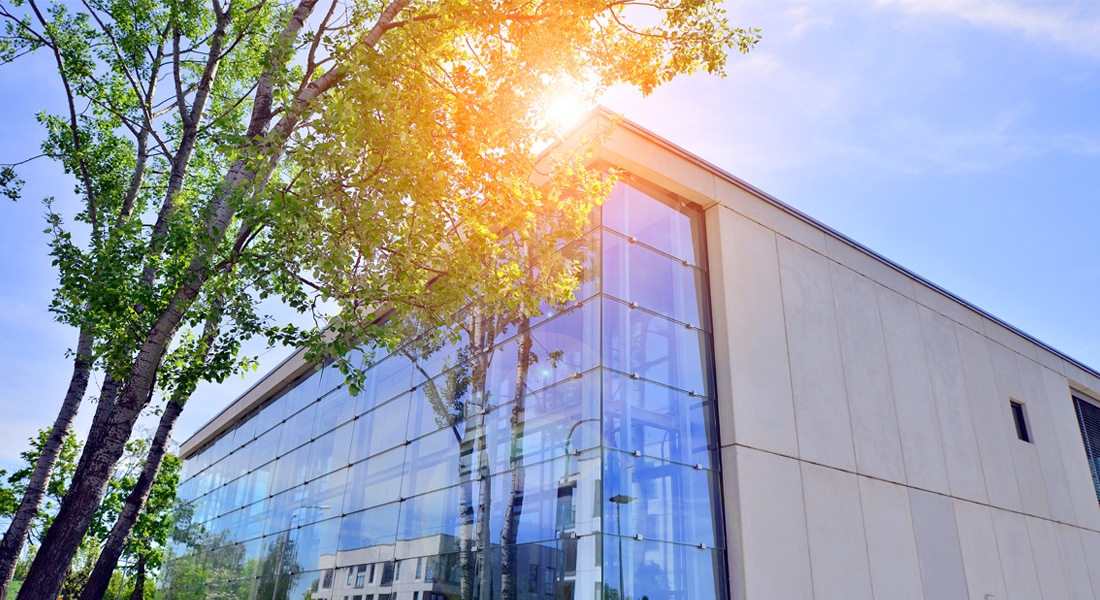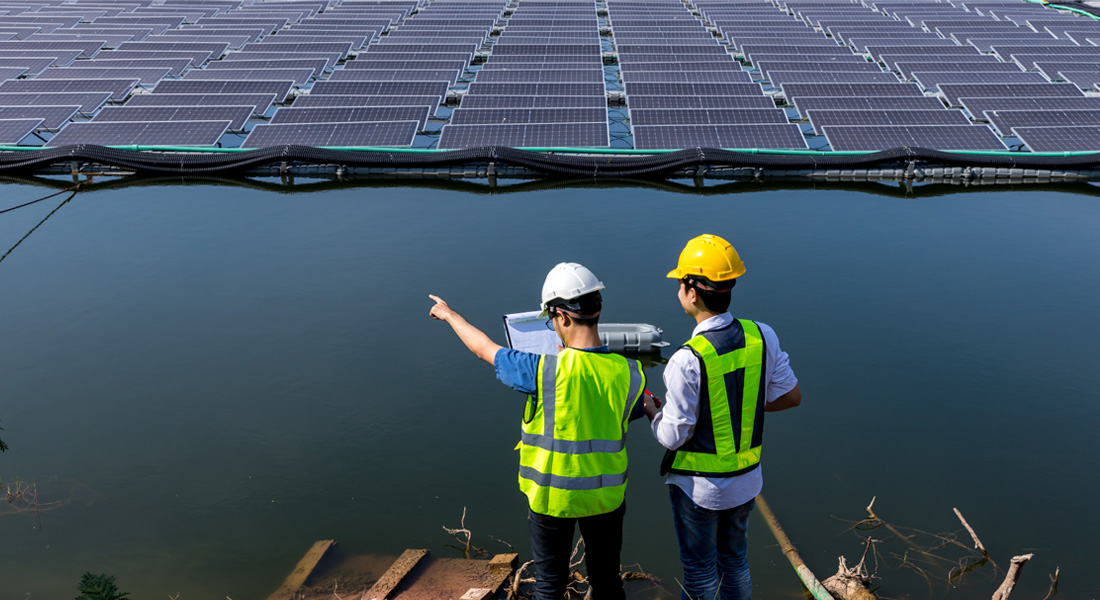The global energy transition is underway, as nations grapple with the pressing realities of climate change. This transition marks a definitive shift from fossil fuel-based energy systems towards sustainable, renewable energy sources. In the western world, this movement is particularly discernible, with concerted efforts being made to reduce carbon footprints and establish low-carbon economies.
Here in the UK, commercial buildings are playing an increasingly important role in this energy evolution. These buildings represent a significant portion of the UK’s total energy consumption, making them hotbeds of energy use. Heating, cooling, lighting, and operating equipment all consume substantial energy. Therefore, the potential for improving energy efficiency and reducing carbon emissions within these structures is profound. The management and optimisation of energy use in commercial buildings can catalyse our transition towards a low-carbon economy.
Beyond this, these buildings also present a tremendous opportunity for harnessing renewable energy sources, making them not just consumers of energy but potential producers as well. They serve as crucial platforms where advanced renewable technologies can be integrated, thus supporting the UK’s efforts in its journey towards energy transition.

Commercial buildings account for a significant portion of the UK’s total energy consumption. According to the Department for Business, Energy and Industrial Strategy (BEIS), this sector consumed 30% of the UK’s total final energy consumption in 2021. This includes energy used for heating, cooling, lighting, ventilation, and other building services.
Energy consumption is also projected to continue increasing in the coming years. This is due to several factors, including the growth of the UK economy, the increasing use of energy-intensive technologies, and the rising demand for energy-efficient buildings.
This high energy consumption has a significant impact on the UK’s carbon emissions. In 2021 for example, commercial buildings emitted 11.6% of the UK’s total greenhouse gas emissions. These emissions are primarily generated from the burning of fossil fuels for heating and electricity.
It’s also noteworthy that commercial buildings’ high energy consumption and associated emissions present a unique challenge in urban areas. With the trend towards urbanisation, cities have become centres of energy consumption and greenhouse gas emissions. This concentration in urban areas, therefore, means that they have a significant role to play in achieving urban sustainability and resilience.
The reduction of energy consumption and carbon emissions in commercial buildings is essential for the UK to achieve its climate change targets. The UK government has committed to achieving net zero greenhouse gas emissions by 2050. To achieve this target, the UK must reduce its energy consumption by 68% by 2030.
The sector also has the potential to contribute to the UK’s energy security. This is possible by producing renewable energy from sources such as solar photovoltaic (PV) systems installed on buildings, wind turbines on large footprint properties, and the use of waste heat from commercial processes. This not only reduces demand on the national grid but also provides businesses with an opportunity to generate additional revenue by selling excess power back to the grid.
While it’s true that new constructions in the UK are markedly energy efficient, it’s important to recognise that 80% of the buildings we’ll see in 2050 already exist today. Therefore, our key focus is to dramatically reduce emissions from our current building inventory while guaranteeing that newly designed low-carbon structures live up to their promises in real-world operation.
It’s also important to consider the role of smart technologies. For instance, technologies such as building automation systems and Internet of Things (IoT) sensors can be deployed to automatically control lighting, heating and cooling, and ventilation systems, ensuring they operate optimally and reduce unnecessary energy waste.
Retrofitting existing commercial buildings with energy-efficient measures is a cost-effective way to reduce their energy consumption and carbon emissions. The cost of retrofitting can be offset by the savings on energy bills. In addition, businesses may be eligible for government grants to help cover the cost of retrofitting.
While retrofitting can lead to substantial energy savings, it’s important to ensure that retrofits are done in a manner that considers the building’s overall performance and indoor environmental quality. For instance, while improving insulation can reduce energy needed for heating and cooling, if not done properly, it could lead to issues like poor ventilation and indoor air quality. Therefore, a holistic approach is needed when planning and implementing retrofit measures.

A pivotal way for commercial buildings to curb their energy consumption and carbon emissions is by generating their own renewable energy. When we speak of renewable energy, we’re referring to sources like solar power, wind energy, and biomass – all of which can provide businesses with a consistent, clean, and sustainable source of energy.
Taking the plunge into renewable energy has several compelling benefits for businesses.
Economic Advantage: Initially, renewable energy systems may seem like a considerable investment, but the long-term savings can be substantial. For instance, the Energy Saving Trust estimates that companies could shave off up to £1,000 per year from their energy bills merely by installing solar panels. As renewable technology advances and becomes more mainstream, the initial costs are steadily decreasing, making renewable energy a more affordable and economically sensible choice than ever before.
Reduced Carbon Footprint: Transitioning to renewable energy is not just about savings, it’s also about social responsibility. By adopting renewable energy, businesses can make a considerable dent in their carbon emissions, significantly decreasing their environmental impact. This not only contributes to global sustainability goals, but also enhances a company’s reputation as a responsible, future-forward business – a factor that’s becoming increasingly important to consumers and stakeholders alike.
Energy Security and Independence: When a business generates its own renewable energy, it becomes less reliant on the national grid, insulating itself from energy price fluctuations and supply interruptions. This self-sufficiency also reduces vulnerability to potential power outages and provides businesses with greater control over their energy usage and expenditure.
Renewable energy isn’t merely a buzzword; it’s a strategic move for businesses aiming to future-proof their operations. By embracing renewable energy, commercial buildings stand to gain economically, environmentally, and strategically, cementing their place in a future where sustainability and profitability go hand in hand.

Inteb is playing an integral role in facilitating businesses transition to a low-carbon economy. Our strategies and services include:
Inteb’s commitment is firmly rooted in the belief that the energy transition is not only essential for the future of our planet but also presents businesses with an incredible opportunity. We’re dedicated to supporting businesses through this transition towards a sustainable and prosperous future.
There are several government schemes and incentives available to help businesses reduce their energy consumption and carbon emissions. These schemes include:
Inteb can help your business to better understand and access these schemes to maximise their financial benefits. We provide expert advice and guidance on how to comply with energy efficiency regulations. This can help businesses to avoid fines and to ensure that they are doing their part to reduce their environmental impact.
The pivotal role of commercial buildings in the energy transition is unquestionable. These structures represent a significant fraction of our overall energy consumption, presenting a substantial opportunity for carbon reduction and energy savings. As we march towards a low-carbon economy, it’s evident that embracing energy efficiency and renewable energy is more than a beneficial step for the environment—it’s also a savvy business decision.
Transitioning to a sustainable energy future is an opportunity to not only reduce operational costs but also enhance corporate reputation. Sustainability is becoming increasingly important to consumers and stakeholders, and businesses that lead the way in this shift will undoubtedly enjoy a competitive advantage.
Here at Inteb, we firmly believe that the energy transition isn’t just a duty—it’s a golden opportunity. We’re committed to guiding businesses through this journey, providing expert support and advice at every step of the way.
Whether you’re a business owner, a sustainability director, a facilities director, or simply someone who is passionate about sustainable practices and renewable energy, you can make a significant difference in the energy transition. By implementing energy-efficient measures and investing in renewable energy, you can help reduce your business’s carbon footprint and save on your energy bills.
Inteb is here to assist you in achieving your sustainability goals. But the journey doesn’t end here. Be sure to follow us on LinkedIn for the latest industry updates, insights, and sustainable practices.
If you’re ready to step into the future and make a difference, contact us today. Together, let’s navigate the path to a sustainable, energy-efficient future.